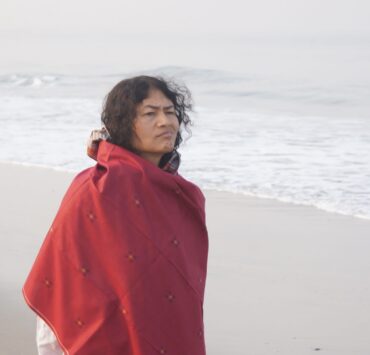
By Ammu Joseph
I read this series of op-ed articles on the elections in UP backwards, starting with “The clarity the secret ballot enables” (The Hindu, 9 March 2017), not realising that it was the third piece by Neelanjan Sircar, Bhanu Joshi and Ashish Ranjan of the Centre for Policy Research, Delhi, examining the electoral scene in the state.
The fourth paragraph caught my attention, with its reference to “an undercurrent of frustration” among people “with the way most journalists and academics characterise the politics of Uttar Pradesh as driven by blind allegiance to caste and religion.” The next paragraph pointed out that a lot more than caste or religion went into “an individual’s vote choice calculation” and that “to reduce this complex choice to uncritical identity-based decision-making is disrespectful to the voters of U.P.”
As I read on I was intrigued to note that almost every voter mentioned in the article was identified by caste. And not one of them was a woman. This is despite the fact that the writers were consciously political correct, using the female pronoun to refer to voters in general: “(The secret ballot)… ensures that a voter can express her preferences without intimidation.”
Having found a reference to an earlier piece in the sixth paragraph, I sought it out. The headline – “Waiting for the silent voters of Uttar Pradesh to speak” (The Hindu, 7 March) – appeared promising: after all, among the most silent (or is it silenced?!) of all voters are women. The first paragraph was also encouraging: at a rural roadside tea shop the writers struck up a conversation with the owners, a married couple. The woman seems to have successfully interrupted her husband twice. “His wife interjects, ‘The SP will win.’” “His wife looks up from making fresh pakoras, pauses, and quips sarcastically, “Oh yeah, he’s a good man.’” (referring to Yogi Adityanath, who her husband said had done much for the area). According to Sircar, Joshi and Ranjan, “The woman seems to have made up her mind, but her husband seems genuinely torn as to whether he will cast his vote for the BJP or the SP…”
That was the only reference to a woman voter in this second article even though, again, the female pronoun was used to refer to the generic voter: “Unlike a sincere voter, who always votes her most preferred party, a strategic voter is a voter who is averse to ‘wasting’ a vote on a party that has little chance of winning…” Focusing primarily on categories and patterns among voters (core and floating, sincere and strategic), this particular piece did not mention many individuals, but it did refer to caste, religious and political affiliations, and even language, as determinants of voter behaviour. From the analysis it would seem that gender plays no role in this context.
The first article in the series, “Bywords in Bundelkhand” (The Hindu, 28 February), which I happened to read last, was rich in people’s voices: “a diverse group, Hindu and Muslim, forward caste and backward caste” in a (Muslim) tailor’s shop, a “Rajbhar man,” “a small shop owner from the OBC Lodh caste,” “a family from the backward class (OBC) Rajbhar community.” The only problem was that not a single woman was, apparently, to be seen or heard. It is not surprising that the “family” comprised only male members since women are rarely to be found “sitting and chatting in front of their home,” because they are usually too busy and, in any case, unlikely to be hanging around outside the house, waiting to talk to strangers.
Senior journalist Smita Gupta’s article, “Ear to the ground” (The Hindu, 4 March), which attempted to figure out whether “a village, with its specific caste complexity, local dynamics and cross-pollination of allegiances” could “hold pointers to the rest of the State during election season,” was refreshingly different.
Far from a “lady-oriented” piece, it nonetheless presents both women and men (from diverse backgrounds in terms of caste, class, religion, educational level, occupation, etc.) as citizens with their own political perspectives and preferences. The women are not just wives who happen to be around – and even when they are they seem to have their own opinions (some express their real views only in private – but make sure they do! – while others are evidently assertive enough to contradict their husbands and/or other men). Several of the women mentioned in the article also have occupations outside the home: as anganwadi workers, a farmer and even a pradhan. As expected, women are the only ones who refer to drains, toilets and roads as issues to be considered in elections. But they also obviously have strong views on notebandi and the impact of the central government’s abrupt “demonitisation” exercise on the lives of ordinary people.
I’d say this is a must-read this election season – and I for one would love to know what the women of Kalan have to say after the election results are announced, as well as a year down the line, and beyond.




